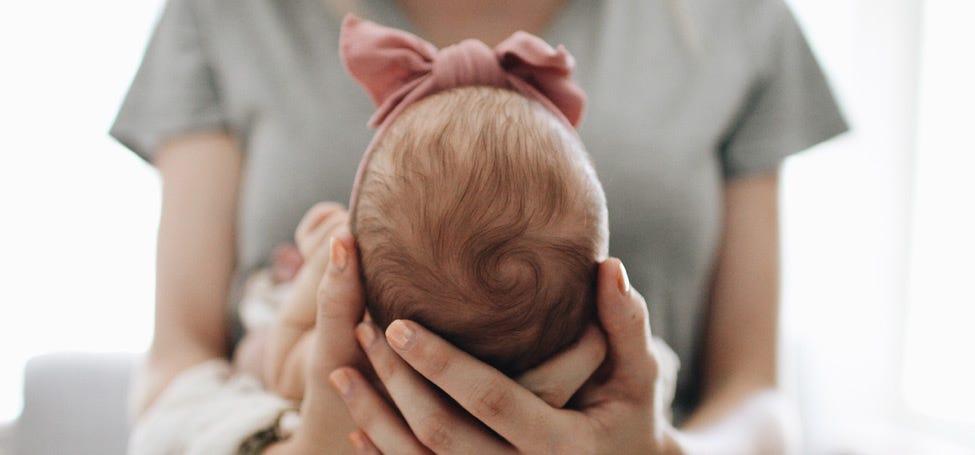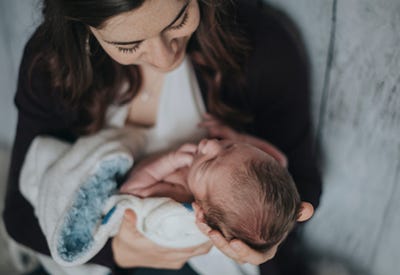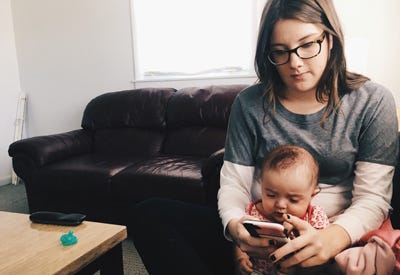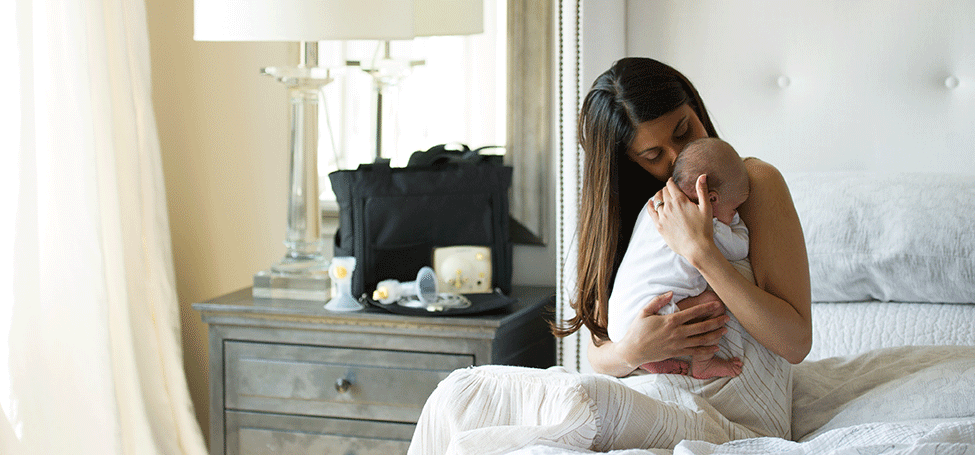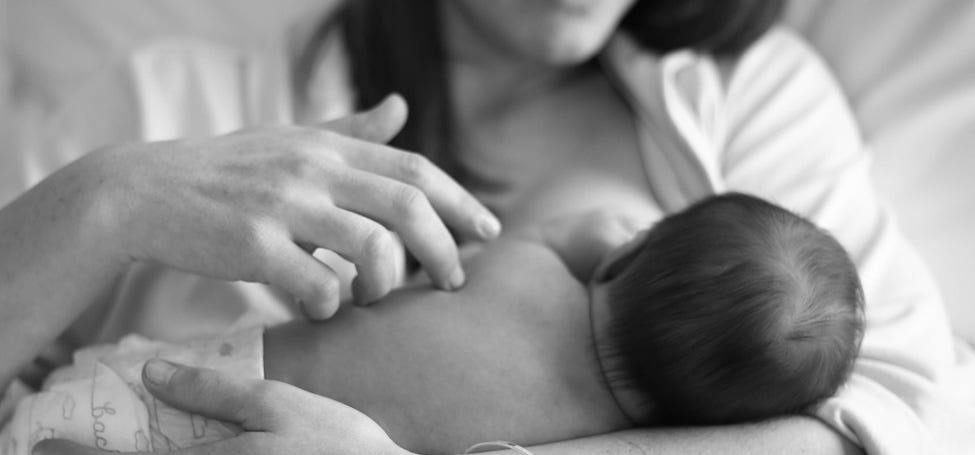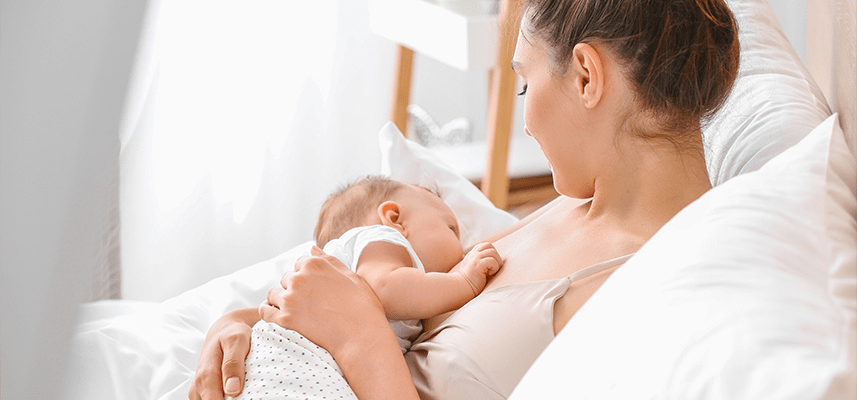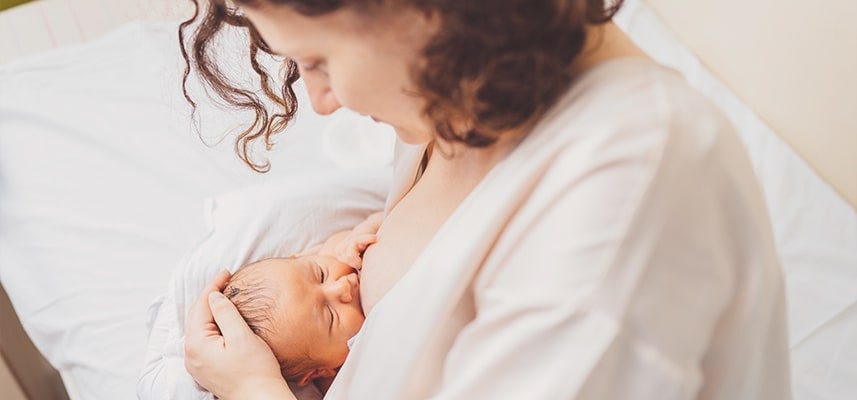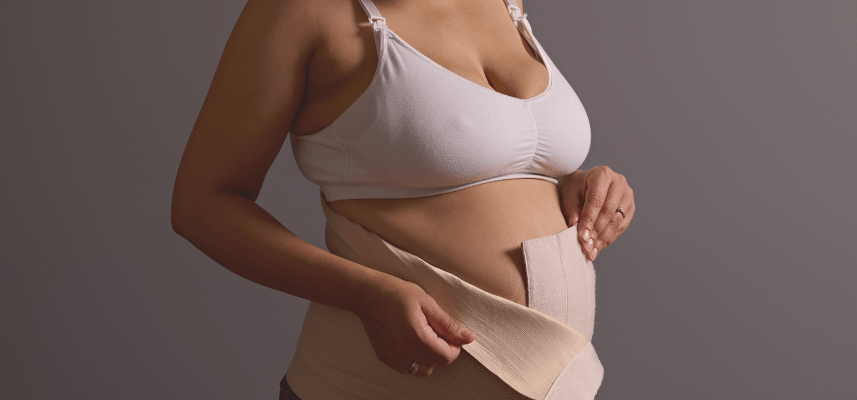As a new mom, it's normal to have tons of questions! Even after consulting your doctor, reading every baby book you could get your hands on, and asking your friends and family for their advice, there are still moments when we turn to the internet with our questions. And why wouldn’t we? It’s right at our fingertips. There’s no replacement for the counsel of a medical professional, but sometimes this step can lay a good foundation for further learning and discussion with trusted sources.
Here are 7 of the most-asked questions about life with a newborn:
When can a newborn see and hear?
When a baby is born, their eye muscles are not very strong yet and because of that a newborns eyesight is usually somewhere between 20/200 and 20/400. This means that your baby can best see things at approximately 8 to 12 inches away and anything that is further away from them than that, just appears as a blurry shape! KidsHealth mentions that a newborn baby is also sensitive to light, which makes sense as they’ve spent the last nine months inside of a dim womb. By the time your baby is a year old, they should be able to see somewhat clearly. Your child’s vision is not completely developed until they’re anywhere from 3 to 5 years old.
As for your baby’s hearing senses, they can hear noises from inside the womb, even before they’ve been born. After birth, baby’s hearing is heightened further as sound comes in loud and clear.
How much weight should baby gain?
A very common question from new mamas is how much weight gain is considered “normal” for their new baby. Too little weight gain, or too much, can be viewed as a concern to your baby's overall health. According to the American Pregnancy Association, a baby that is carried full term usually has a varying weight between 6lbs and 9lbs. There are different factors that affect your baby’s weight at birth, and weighing outside what is considered the “average” weight is still completely healthy. After birth, your baby’s weight will likely fluctuate, but should even back out by the time they are around 2 weeks old. For guidelines on gaging your baby’s weight gain from month to month, check out this guide.
How often should newborns be fed?
The simple answer is that babies should be fed when they are hungry! All babies are different, which makes this hard to answer universally. Usually, newborn babies eat every 2 to 3 hours. For more information and general guidelines for feeding your baby, visit this page.
Can newborn babies drink water?
Healthdirect.gov says that breast milk and/or formula should be mainly consumed by your baby until they are close to 12 months old.
How long should I breastfeed my baby?
The World Health Organization (WHO) and American Academy of Pediatrics (AAP) both recommend breastfeeding your baby for at least a year, while adding additional foods and supplements into your baby’s diet at around 6 months of age. Breastfeeding until your child is 12 months old is proven to increase their immune system strength, according to Healthline. It’s recommended past the one year mark that you offer baby other foods up to five times a day. At this time, there are no known risks for extended breastfeeding. While the average weaning age is around 2 to 4 years old, many cultures breastfeed children until they are 6 or 7 and it is considered to be normal.
How much do newborns sleep?
Newborn babies require a lot of sleep! But how much is enough and what is too much? Unfortunately, there is no one answer to this question. Stanford Children's Health states that newborns generally sleep 8 hours through the day and night, both. Because their stomach is so small, a newborn will wake to eat frequently (every few hours) and not be able to sleep through the night until they are around 3 months old.
When can my newborn baby fly on a plane?
There is no specific age requirement when flying with a newborn. Many airlines do have an age minimum on infant passengers, so depending on your airline carrier, it is important to check those requirements. Also, it is always recommended to consult your pediatrician if you plan to travel with your new baby. Babies have developing immune systems and air travel may expose them to germs and increase their risk of catching an infectious disease. Find more information on air travel with an infant here.
Information provided in blogs should not be used as a substitute for medical care or consultation.

